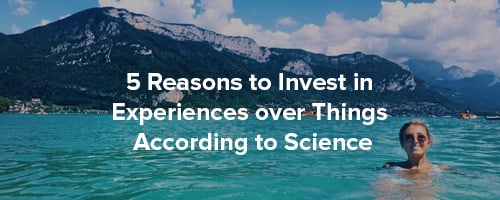“What do you do?” As a 20-something living near Washington DC, I often face this question: in bars, group meetings, first dates, and even at the gym or on the bus. My usual prepared statement is “I prepare students for international internships through a third-party provider, from the time they enroll in our program until their ‘wheels leave the ground,’” and I usually provide context to this statement by explaining that our organization is somewhat like a study abroad provider, yet we give students and young professionals the opportunity to work abroad rather than study. People will often say “That’s cool,” or “Oh, fun! Do you get to travel a lot?” and then the conversation moves on. In perusing through the June 2014 issue of the Harvard Business Review today, however, I’ve discovered my new elevator speech:
“We match young adults with internships that challenge them and develop their potential, thus molding them into future industry leaders.”
Let me explain: The article, “21st-Century Talent Spotting: Why potential now trumps brains, experience, and ‘competencies.’” by Claudio Fernandez-Araoz, is essentially a basic primer for business leaders who are looking to update their hiring practices. It outlines how, when looking for a potential hire, especially one coming into a leadership role, recruiters and interviewers should be looking not only for experience, competencies, intelligence, education, and test scores, but also for that all-elusive quality: potential. A leader in a company can be the smartest person in their graduating class, but if they don’t have potential, if they don’t have “the ability to adapt to and grow into increasingly complex roles and environments,” they will never succeed as an employee, much less an executive, no matter what the industry.
As I was reading it, I realized that here at Global Experiences, we are working with the very youth that these executives will be recruiting in 10-20 years. In many cases, we are giving them their first experience in their chosen industry and have the immense power and responsibility to make sure we are helping them develop their potential. But what is potential anyway? In a world obsessed with numbers and results and quantitative data, how do interviewers assess such a nebulous quality? In the article, Fernandez-Araoz outlines five indicators of potential, and as I delved into what these indicators were, I realize that, through our internships, we are helping our interns develop all of these qualities.
1. Motivation: “a fierce commitment to excel in the pursuit of unselfish goals”
We encourage our interns at every process to dedicate them to their internships, and prove to their supervisors that they have this motivation. We ask them to explain it to a number of our staff throughout their pre-departure process and their internship, to write about it in their cover letters, to talk about it in their interviews, and to reflect upon it throughout their internship. We ask them to show their employers how they can help their supervisors, and we only send our interns to employers that will inspire them to work fiercely and unselfishly.
2. Curiosity: “a penchant for seeking out new experiences, knowledge, and candid feedback and an openness to learning and change”
We encourage our interns to take advantage of the ample amount of opportunities available to them in their host cities as well as at their home institutions, and we also will provide them with ideas or guidance on how they can activate their natural curiosity. Our internship, because it is abroad, by definition, will be a new experience for the majority of our interns, and we promote an open culture by both giving and receiving feedback from our interns, parents, university partners, and employers.
3. Insight: “the ability to gather and make sense of information that suggests new possibilities”
Countless studies and anecdotal experiences suggest that living and working abroad changes the way that you think, because it takes you outside of your normal. Because they are living in a new environment, surrounded by not only a different culture, but also a different work culture, our interns’ time abroad helps them develop this kind of insight. They are exposed to new ways of working, living, eating, thinking, and existing, and thus they gain the ability to see and suggest new solutions to old problems.
4. Engagement: “a knack for using emotion and logic to communicate a persuasive vision and connect with people”
When you live abroad you have to learn how to communicate in a whole new way. In their internships, our interns often have to adjust to their first time communicating within an office, or at least within a true professional setting (often in a different language!) and throughout both their pre-departure process and their internship, we work with them to develop their emotional intelligence and to increase the level and quality of their engagement.
5. Determination: “the wherewithal to fight for difficult goals despite challenges and to bounce back from adversity”
Ernest Hemmingway said “The world breaks everyone and afterward many are strong in the broken places.” Anyone who has ever lived abroad knows that it is both the most difficult and most rewarding experience of your life. Our interns are faced with all kind of challenges the moment they sign up for our program, and when they come out alive and much less flourishing on the other side, they develop a determination born out of the confidence they’ve developed.
In providing this life-changing experience for our interns, we help these interns develop all 5 of these potential indicators. In giving them a challenging internship abroad in which our interns have to leap outside of their comfort zones and face a new environment in both their personal and professional lives, we here at Global Experiences are truly molding them into the 21st-century leaders we need.





















